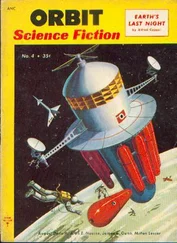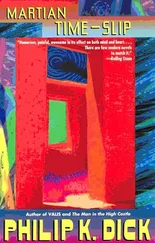Philip Dick - Time Out of Joint
Здесь есть возможность читать онлайн «Philip Dick - Time Out of Joint» весь текст электронной книги совершенно бесплатно (целиком полную версию без сокращений). В некоторых случаях можно слушать аудио, скачать через торрент в формате fb2 и присутствует краткое содержание. Жанр: Фантастика и фэнтези, на английском языке. Описание произведения, (предисловие) а так же отзывы посетителей доступны на портале библиотеки ЛибКат.
- Название:Time Out of Joint
- Автор:
- Жанр:
- Год:неизвестен
- ISBN:нет данных
- Рейтинг книги:5 / 5. Голосов: 1
-
Избранное:Добавить в избранное
- Отзывы:
-
Ваша оценка:
- 100
- 1
- 2
- 3
- 4
- 5
Time Out of Joint: краткое содержание, описание и аннотация
Предлагаем к чтению аннотацию, описание, краткое содержание или предисловие (зависит от того, что написал сам автор книги «Time Out of Joint»). Если вы не нашли необходимую информацию о книге — напишите в комментариях, мы постараемся отыскать её.
Time Out of Joint — читать онлайн бесплатно полную книгу (весь текст) целиком
Ниже представлен текст книги, разбитый по страницам. Система сохранения места последней прочитанной страницы, позволяет с удобством читать онлайн бесплатно книгу «Time Out of Joint», без необходимости каждый раз заново искать на чём Вы остановились. Поставьте закладку, и сможете в любой момент перейти на страницу, на которой закончили чтение.
Интервал:
Закладка:
"The bell told on tee-hee."
That stuck in his craw. Gibberish, certainly. But it suggested homosexuality. "Bell." And the "tee-bee," the effeminate laugh of the queer, the belle. And the John Donne sermon with the line, "For whom the bell tolls." Also a Hemingway book. Tee might be tea. Ring bell, get tea served. Tiny silver bell. Mission! The mission at Capistrano, where the swallows returned to! It fitted.
While he was pondering the clues, he heard steps on the front walk. Setting down the paper, he slipped into the living room to see who it was.
Approaching the house was a tall, slim, middle-aged man wearing a baggy, tweedy suit, and smoking a cigar. He had a kindly look, like a minister or a drain-inspector. Under his arm he carried a manila folder. Ragle recognized him. The man represented the _Gazette_; he had come visiting a number of times before, sometimes to bring Ragle's check -- which ordinarily was mailed -- and sometimes to clear up misunderstandings about entries. Ragle felt dismay; what did Lowery want?
With no haste, Lowery stepped up onto the porch, raised his hand and touched the bell.
Bell, Ragle thought. Minister. Maybe the clues were there to tell him that the newspaper would be sending Lowery to visit him.
"Hi, Mr. Lowery," he said, opening the door.
"Hello, Mr. Gumm." Lowery beamed ingenuously; there was no gravity in his manner, nothing to suggest that any bad news was to be conveyed, or that anything had gone wrong.
"What's the visit for?" Ragle asked, sacrificing manners in the name of need.
Lowery, chewing on his Dutch Master, gazed at him and then said, "I have a couple of checks for you... the paper thought I might as well deliver them in person, since they knew I'd be driving out this way today." He wandered about the living room. "And I have a few things to ask you. Just to be on the safe side. About your entries for yesterday's contest."
"I mailed in six," he said.
"Yes, we got all six." Lowery winked at him. "But you failed to indicate the order of value." Opening the manila envelope, he laid out the six entry forms; they had already been photographed, reduced to more convenient size. Handing Ragle a pencil, Lowery said, "I know it's just an oversight on your part... but we have to have them numbered."
"God damn," he said. How could he have been in such a hurry? Swiftly, he marked them in order, from one to six. "There," he said, returning them. What a stupid oversight. It might have cost him the contest then and there.
Lowery seated himself, selected the entry marked one, and for a surprisingly long time studied it.
"Is it right?" Ragle demanded, although he knew that Lowery would not know; the entries had to be sent on to puzzle headquarters in New York or Chicago, wherever it all was done.
"Well," Lowery said, "time will tell. But this _is_ the one you mean as your first entry. Your primary entry."
"Yes," he said. This was the secret compact between himself and the contest people; he was permitted to submit more than one entry for each day's puzzle. They allowed him up to ten, with the stipulation that they be numbered in order of preference. If the number one entry was incorrect, it was destroyed -- as if it had never reached them -- and the second was considered, and so on down to the last. Usually, he felt sure enough of the solution to limit his submissions to three or four. The fewer, of course, the better the contest people felt about it. No one else, to his knowledge, had this privilege. It was for the one simple purpose of keeping him in the contest.
They had proposed it, after he had missed the correct solution by only a few squares. His entries generally grouped about tangent squares, but once in a while he was unable to decide between squares quite far apart on the entry form. In those cases, he took a risk; his intuition was not strong. But when he felt the solution to lie in an approximate region, he was safe. One or another of the entries proved correct. In his two and a half years of submissions, he had missed eight times. On those days none of his entries had been correct. But the contest people had allowed him to continue. There was a clause in the rules that permitted him to "borrow" against past correct entries. For every thirty correct entries he could make one mistake. And so it went. By the use of loopholes he had remained in the contest. No one outside the contest knew that he had ever missed; it was his secret and the contest people's secret. And neither of them had any motive to air it publicly.
Evidently he had become valuable from the standpoint of publicity. Why the public would want the same person to win over and over again he did not know. Obviously, if he won he won over the other contenders. But that was the manner of the public mind. They recognized his name. As it was explained to him, the theory went that the public liked to see a name they could identify. They resisted change. A law of inertia was involved; as long as he was out, the public wanted him -- and everyone else -- out; as soon as he was in, well, that made it self-perpetuating. The forces of stasis worked on his side. The vast reactionary pressures now ran with him, not against him. "Swimming with the tide," as Bill Black would put it.
Lowery, seated with his legs crossed, smoking and blinking, said, "Have you looked at today's puzzle?"
"No," he said. "Just the clues. Do they mean anything?"
"Not literally."
"I know that. I mean, do they mean anything at all, in any way, shape, or form? Or is it just to convince us that somebody up at the top knows the answer?"
"What does that mean?" Lowery said, with a shade of annoyance.
"I have a theory," Ragle said. "Not a very serious theory, but it's fun to toy with. Maybe there's no correct answer."
Lowery raised an eyebrow. "Then on what basis do we declare one answer a winner and all others incorrect?"
"Maybe you read over the entries and decide on the strength of them which appeals to you the most. Esthetically."
Lowery said, "You're projecting your technique on us."
"My technique?" He was puzzled.
"Yes," Lowery said. "You work from an esthetic, not a rational, standpoint. Those scanners you constructed. You view a pattern in space, a pattern in time. You try to fill. Complete the pattern. Anticipate where it goes if extended one more point. That's not rational; not an intellectual process. That's how -- well, vase-makers work. I'm not disapproving. How you go about it is your business. But you don't dope it out; I doubt if you've ever solved the content of the clues. If you had you wouldn't have asked, matter of fact."
No, he realized. I never have doped out the clues. In fact, it had never occurred to him that anybody did, that anyone read them and got concrete meanings from them. Such as lining up the first letters of each third word, adding ten, and coming out with the number of a specific square. Thinking that, he laughed.
"Why laugh?" Lowery said, with great soberness. "This is a serious business. A lot of money is at stake."
"I was just thinking about Bill Black."
"Who's that?"
"A neighbor. He wants me to teach him how I do it."
"Well, if it's done on an esthetic basis--"
"Then I can't," Ragle finished for him. "He's out of luck. That's why I laughed. He'll be disappointed; he wanted to pick up a couple of bucks."
With a suggestion of moral indignation, Lowery said, "Does it please you to know that your talent can't be taught? That it isn't a technique in the usual sense... it's more a--" He searched for the word. "God knows. Obviously, chance plays no role."
"I'm glad to hear somebody say that."
Lowery said, "Can anybody imagine in good faith that you could _guess_ correctly, day after day? That's ridiculous. The odds are beyond calculation. Or at least, almost beyond. Yes, we did calculate it. A stack of beans reaching to Betelgeuse."
Читать дальшеИнтервал:
Закладка:
Похожие книги на «Time Out of Joint»
Представляем Вашему вниманию похожие книги на «Time Out of Joint» списком для выбора. Мы отобрали схожую по названию и смыслу литературу в надежде предоставить читателям больше вариантов отыскать новые, интересные, ещё непрочитанные произведения.
Обсуждение, отзывы о книге «Time Out of Joint» и просто собственные мнения читателей. Оставьте ваши комментарии, напишите, что Вы думаете о произведении, его смысле или главных героях. Укажите что конкретно понравилось, а что нет, и почему Вы так считаете.









